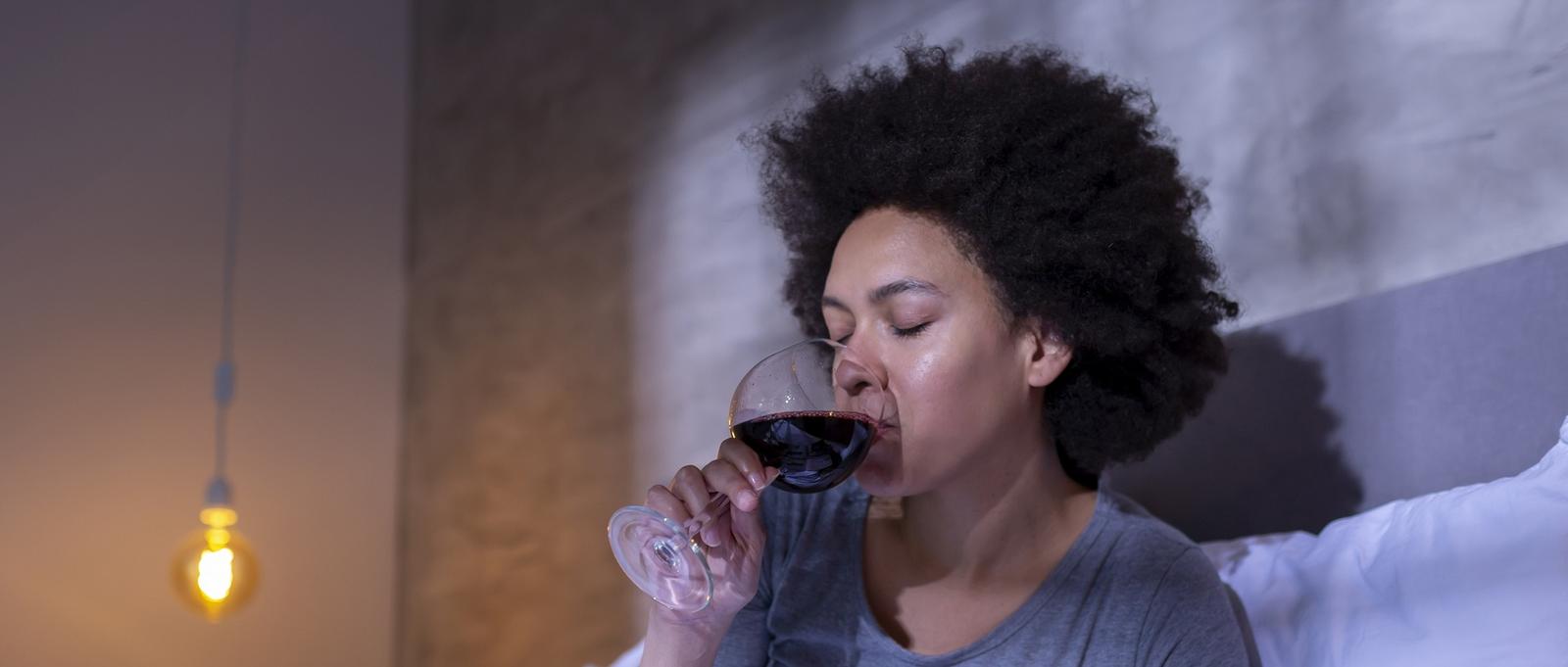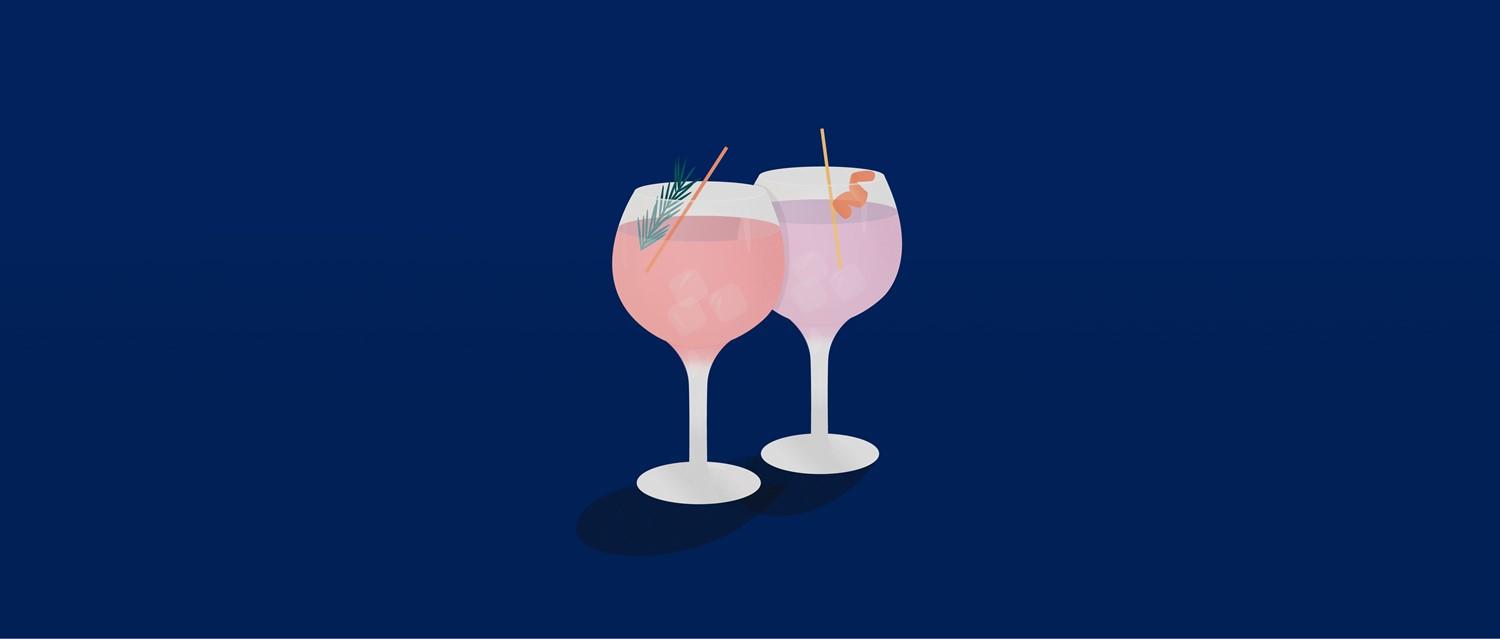
Why does drinking alcohol affect your sleep?
Peer reviewed by Dr Krishna Vakharia, MRCGPLast updated by Victoria RawLast updated 4 Dec 2024
- DownloadDownload
- Share
Sometimes after drinking, it can feel like you're asleep before your head hits the pillow. However, in truth, the rest of your night's sleep will be disturbed by the alcohol in your system. You might wake up more than usual in the night - and feel exhausted in the morning. But why does alcohol affect your sleep?
In this article:
Continue reading below
How alcohol affects your sleep
Disrupted sleep
At first, drinking alcohol can make you feel sleepy and relaxed, because it has a sedative effect on your central nervous system. Although this means you might fall asleep quicker, drinking too much alcohol has been linked to poor sleep quality, which means you're more likely to have a bad night's sleep.
After you drink alcohol, it is absorbed into your bloodstream and processed in the liver. How long this takes can depend on many factors - including the amount of alcohol, your age, how much you've eaten, your sex, and your body type.
If you fall asleep after drinking too much, your body will continue to break down the alcohol during the night. As your body works to lower your blood alcohol level, you may experience disrupted sleep and wake up more often than usual.
In turn, this affects all the different phases of sleep we get a night - which are usually finely tuned to make sure we are rested and our brains can function properly. This includes disrupting our restful deep sleep, or REM sleep, leading to more periods of wakefulness.
The occasional bad night's sleep may be unpleasant, but is unlikely to have a lasting effect. However, studies have shown that a continuous lack of REM sleep can negatively affect memory and learning, may impact our emotional abilities and increase the chance of migraine. Poor sleep has also been linked to an increased likelihood of mental health problems such as anxiety and depression, hypertension, obesity, heart attack and stroke.
Patient picks for Alcohol advice

Healthy living
What are the benefits of giving up alcohol?
Many of us are guilty of having too much alcohol, particularly on a special occasion or at the end of a long week. However, abstinence is becoming more mainstream - and people turning to non-alcoholic alternatives says it does wonders for their mental and physical health.
by Lydia Smith

Digestive health
Alcoholism and problem drinking
Many people drink alcohol. For some, alcohol is something that they enjoy in moderation. Other people drink alcohol at levels that are likely to lead to physical or mental health problems. Some people can find it very difficult to control, or stop, their drinking.
by Dr Doug McKechnie, MRCGP
Alcohol and toilet trips
If you drink alcohol before bed, you may also find yourself getting up more often in the night to go to the toilet. Alcohol is a diuretic, which means you pee and sweat more. This can also make you feel even more dehydrated.
Alcohol and sleep apnoea
Research has also shown that alcohol use can worsen the symptoms of sleep apnoea, a disorder in which your breathing stops and starts while you sleep. The most common type is called obstructive sleep apnoea. Even if you don't have the condition, studies show that moderate or heavy drinking can cause episodes of obstructive sleep apnoea.
Why drinking makes you snore
Drinking alcohol relaxes the muscles around your throat, making you more likely to snore too. This is because alcohol can make the tissue in the nose swell, which can cause congestion and create a need to breathe through the mouth, making you snore. Snoring may well disturb your own sleep by waking you up - but it is likely to cause problems for partners too.
Is a nightcap before bed still ok?
The short answer is - no. Some people feel that drinking alcohol before bed helps them doze off better. However, though it may get you to sleep quicker in the short term, you'll most likely wake up in the night as a result. Aim to have finished your final drink at least three hours before you go to bed.
Continue reading below
How to get a good night's sleep
If you're relying on alcohol to fall asleep, you should seek out healthier alternatives. You can do this by speaking to your doctor, practicing mindfulness techniques, or by incorporating regular sleep schedules and calming bedtime routines. Avoid napping during the day, don't smoke or drink caffeine before bed, and cut down on your screen time as you're settling down to sleep.
Alcohol guidelines
Men and women are advised not to drink more than 14 units of alcohol a week. It helps to know how many units are in a drink - 14 units is the same as six pints of average-strength beer or ten small glasses of lower-strength wine.
If you want to cut down, it can help to have several drink-free days each week. If you're at a party, you could try opting for a soft drink or glass of water between alcoholic drinks, which will help keep you hydrated and mean you drink less alcohol over the night.
Article history
The information on this page is peer reviewed by qualified clinicians.
Next review due: 4 Dec 2027
4 Dec 2024 | Latest version
17 Jan 2024 | Originally published
Authored by:
Lydia Smith

Ask, share, connect.
Browse discussions, ask questions, and share experiences across hundreds of health topics.

Feeling unwell?
Assess your symptoms online for free